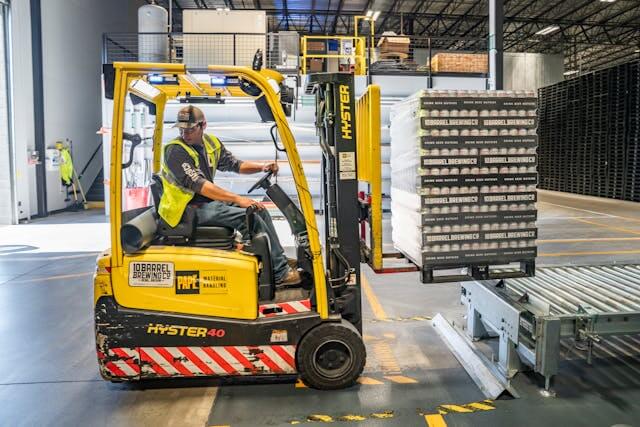Scope of application of Collective Bargaining Agreement No. 32bis
The employees’ right to keep their wage- and working conditions in the event of a transfer of undertaking stems from an EU Directive. Collective Bargaining Agreement (CBA) No. 32bis is the transposition of this Directive into Belgian law. Therefore, strictly speaking, the rules are not laid down in a statute but rather in an agreement that was concluded with labour union partners across all sectors, so it certainly bears some weight.
CBA No. 32bis must be applied whenever there is a “transfer” of an undertaking, i.e., “the transfer of an economic entity that retains its identity, meaning an organized grouping of resources that has the objective of pursuing an economic activity, whether or not that activity is central or ancillary.“
The transfer of an undertaking in the sense of CBA No. 32bis therefore implies three conditions: 1) a change of employer, 2) a transfer of an undertaking or part of it, and 3) an agreement between the employer that transfers its undertaking and the employer that takes this over.
In Delhaize’s case, these conditions are fulfilled: 1) “Delhaize” is no longer the employer, and the franchisee will take over the authority that Delhaize has over its staff, 2) every individual supermarket is considered a part of an undertaking, and each supermarket will be transferred together with all its elements so that it can continue to carry out the same business activities afterwards, and 3) an agreement will be concluded between Delhaize (the franchisor) and a franchisee.
Consequent to this is that employees who are bound by an employment contract with Delhaize at the time of the transfer and who are hired to work in the part of the transferred undertaking (read: the supermarket) are “protected” by CBA No. 32bis.
Principle: retention of wage- and working conditions
The CBA stipulates that “the rights and obligations arising for the transferor under the existing employment contracts at the time of the transfer are taken over by the transferee by reason of this transfer.”
In concrete terms, the franchisee must assume the obligations that arise from the employment contracts that are in force at the time of the transfer. Therefore, by the mere fact of the transfer of the supermarket (and the signing of the franchise agreement), the entire work force are transferred as well—and this by operation of law, thus completely automatically. There’s even no need to conclude a new employment contract or sign any addendum, which indicates the employee’s consent to be transferred.
Because of the fact that the employment contracts are transferred in their entirety with all of their substantive provisions and conditions, the transferred employees have the right to demand that the individual and collective working conditions under their contracts be retained.
An important note here is that employees may never be compelled to join the franchisee. Nor are they allowed to oppose the transfer of their employment contract and demand that they remain employed at Delhaize. Despite this, however, they do have the right to refuse to continue the employment relationship with the franchisee.
Individual working conditions
The franchisee must adhere to the individual working conditions, which are integral to the employment contract. These conditions include the remuneration, the job position, the tenure (or length of service), the work scheme, etc. For example, the tenure of the transferred employee, which is taken into account when determining the termination notice period if the franchisee were to proceed to a dismissal, starts from the time when the employee started working at Delhaize.
This does not mean that the franchisee has no leeway, however. The franchisee can amend the working conditions to the extent that Delhaize could have amended them as well. The question then arises as to whether the employer has the right to amend the non-essential conditions unilaterally. The remuneration, the job position, the working schedule, and the place of work are essential working conditions that can be amended only if the employee agrees to it. Non-essential elements can therefore be amended unilaterally.
It is thus possible to hire work-study students or flex-job workers as doing so does not immediately affect the position of the transferred employee, but remuneration differences or longer working hours (Sunday work, longer opening hours) can be more difficult to impose on them unilaterally.
Collective working conditions
The collective working conditions, especially the minimum wage (and its indexation), are governed extensively by sectoral CBAs concluded at the level of the applicable Joint Committee (paritaire comité). The applicable Joint Committee is determined according to the employer’s main business activity.
The legislation on this stipulates that the new employer must adhere to the sectoral CBAs that bound the former employer but only “until they cease to have effect.” This would not be a problem if the transferor and transferee belong to the same Joint Committee as the same sectoral framework applies.
The problem arises if the franchisee belongs to another Joint Committee in which the “rules of the game” are different. This could be so in Delhaize’s case. Concretely speaking, the “franchising” of Delhaize could entail that the employees must leave the (more favourable) Joint Committee 202 for white-collar workers in retail and food (food business operators with numerous branches) and become affiliated to either Joint Committee 202.01 for medium-sized food business operators (independent supermarkets with at least 20 employees) or Joint Committee 201 for independent small retail businesses (with less than 20 employees).
The franchisee must comply with the CBAs applicable to Delhaize that were concluded at sector- or company level, but not for long though. Trade unions fear this the most as they’re afraid that the consequences will unfold over a slightly longer time period. This means that open-ended CBAs can be terminated and currently valid fixed-term CBAs can expire after some time. The only exception to this is the so-called “incorporation doctrine”, which falls outside the scope of this article, however.
Protection from dismissal
A protection from dismissal is embedded in CBA No. 32bis as well. To ensure that the franchisee retain the employment relationship, the franchisee is prohibited from terminating the employees after the transfer, except if they are dismissed for urgent cause or for economic, technical, or organizational reasons. An example of the latter is the situation in which the supermarket is not profitable with so many employees. But the CBA does not explicitly impose any fines for violation of this.
Needless to say, this protection from dismissal is temporary. The employees who were dismissed during a period that is a lot later from the date of the transfer can find it hard, in theory, to invoke that they were dismissed as a result of the transfer.
Social dialogue bodies
The “power by number” disappears if the supermarkets become independently operated. To foresee the set-up of a Works Council or a Committee for Prevention and Protection at Work (CPPW), certain employee headcount thresholds are used. For a Works Council, the threshold is 100 employees, and for the CPPW, it’s 50. These thresholds are reached quite quickly at the level of all of Delhaize’s self-operated supermarkets, but franchised supermarkets will often have a structure with less than 50 persons in their workforce. This means that the minimum number of employees required on the payroll to have a union representative appointed will most often not be reached.
This would of course give the franchisee more freedom: the franchisee will not have to conduct collective labour negotiations, it will not have to abide by any dismissal protection towards any personnel member who holds a mandate, and so on.
Conclusion
In short, subject to several essential rules that must be considered and providing that no major changes are made to the fundamental elements of the wage- and working conditions, there is still some margin to get a successful independent operation of a Delhaize supermarket on its feet—with personnel satisfaction.
CBA 32bis offers some protection to employees, which you should certainly adhere to, but you can certainly bear in mind the changed context and the specificities of the smaller franchise operation as well.






